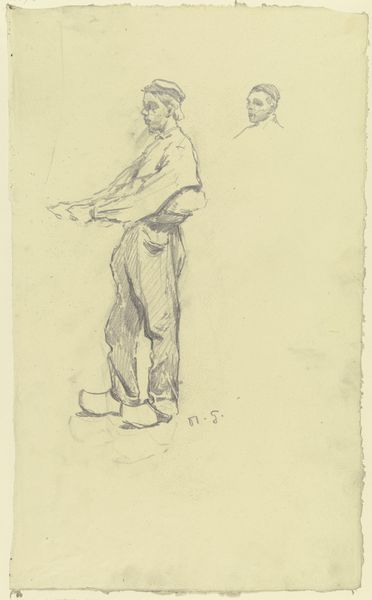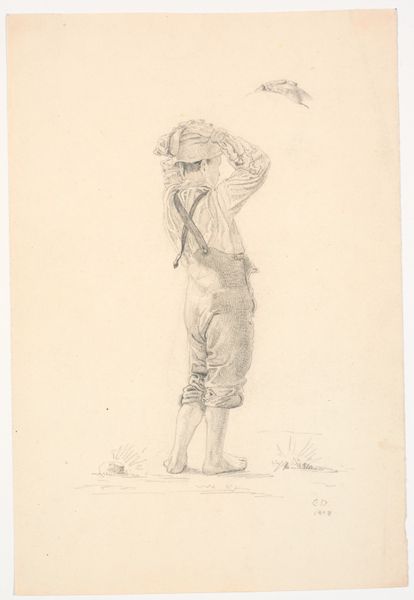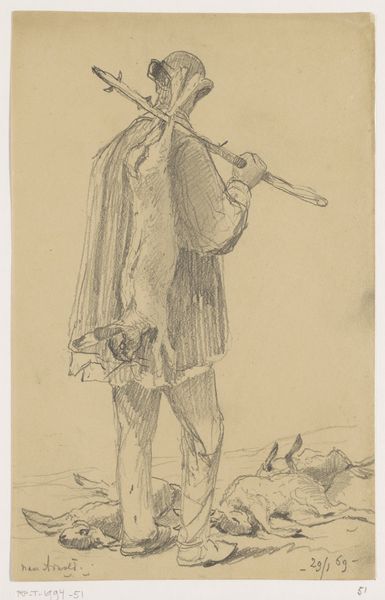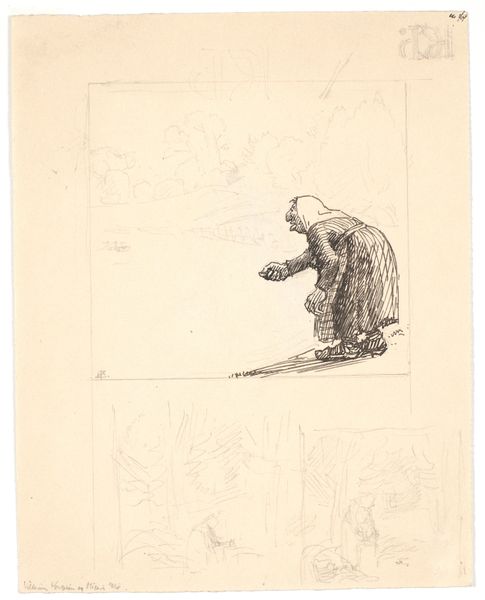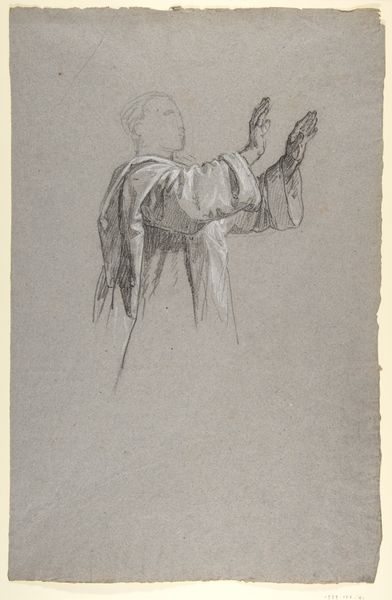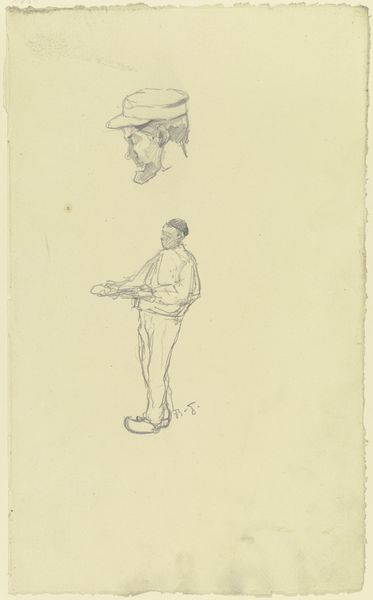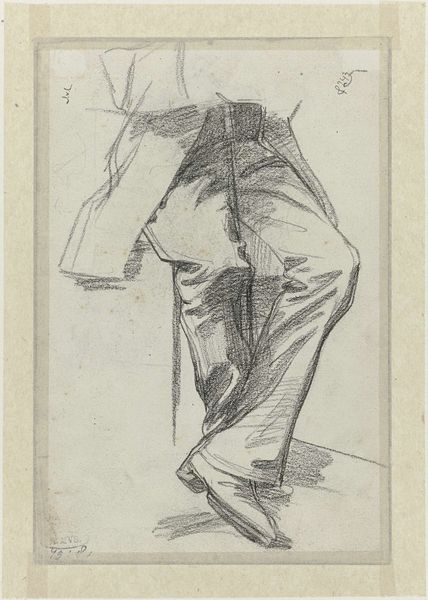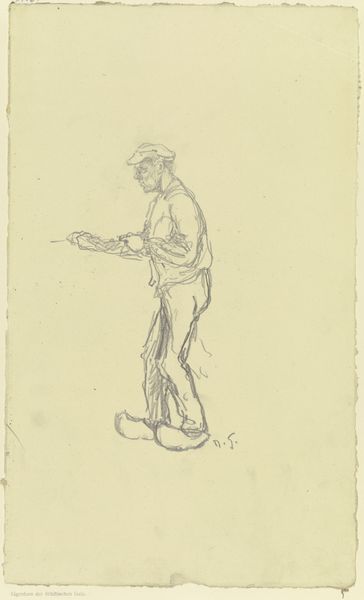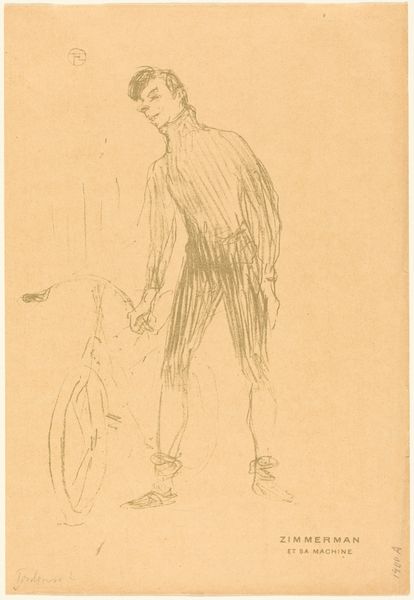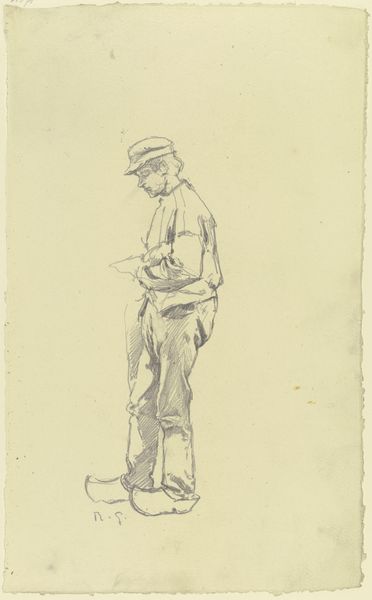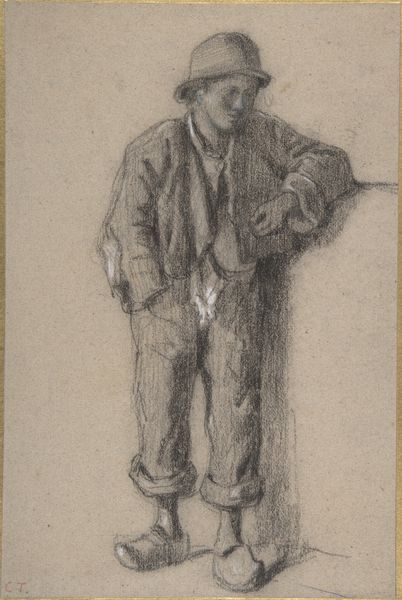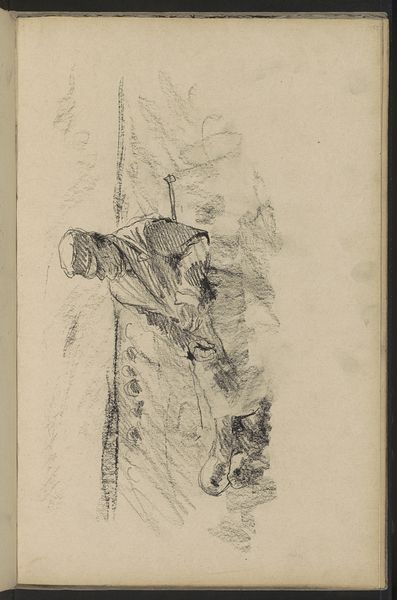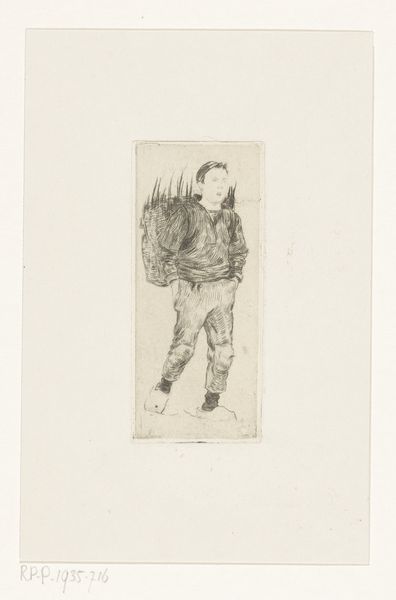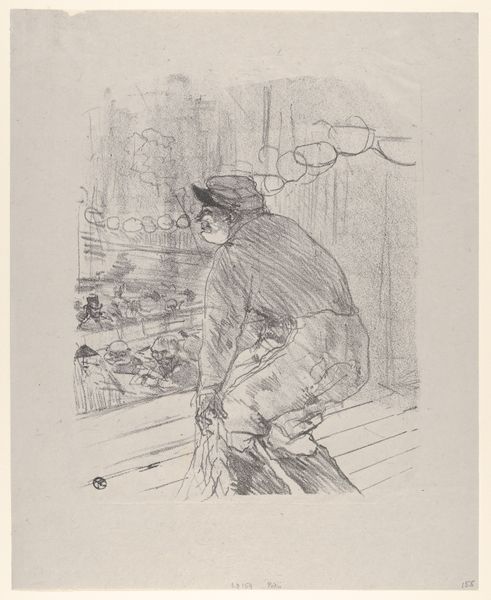
drawing, pencil
#
portrait
#
drawing
#
toned paper
#
light pencil work
#
pencil sketch
#
landscape
#
personal sketchbook
#
ink drawing experimentation
#
pen-ink sketch
#
pencil
#
sketchbook drawing
#
pencil work
#
storyboard and sketchbook work
#
sketchbook art
#
realism
Dimensions: height 475 mm, width 280 mm
Copyright: Rijks Museum: Open Domain
Editor: So, this is George Hendrik Breitner’s “Studies van een tuinman,” from 1867 to 1923, a pencil drawing on toned paper, housed at the Rijksmuseum. It's a sketch of a gardener with additional studies of his hands and feet, it seems. I’m curious about why Breitner chose to represent this everyday laborer. What can we make of it? Curator: Well, let’s think about the materials first. Breitner chose readily available, inexpensive pencil and paper. Toned paper especially! Not some grand canvas, but the tools of everyday documentation. What does that suggest about his intent? Editor: It sounds like you’re implying that it has something to do with the dignity of the worker. Curator: Precisely! Look at the clogs – traditional, practical footwear. What are the implications of him portraying the man's whole outfit and labour like this, how might that reflect shifts in the art world or society at the time? Editor: It sounds like he might be elevating everyday labor to something worthy of artistic attention, perhaps challenging the established norms of what art should depict? Curator: Exactly! Before, art celebrated royalty and high society. But here’s Breitner, focusing on the materials, labor and life of an ordinary worker. Is he idealizing the figure, or making other deliberate stylistic choices? Editor: I see what you mean. The sketch feels honest and direct. The worker's pose is natural and unglamorous. This also means a new approach to art through subject matter that reflects social movements. Curator: So, think about this sketch in relation to broader shifts of labor! With artists like Breitner focused on these everyday laborers and activities. How is the means of art production mirroring its subject? Editor: That’s such a thought-provoking angle. I was so focused on the subject matter that I didn’t consider how Breitner’s choice of materials and technique is equally meaningful, like the value or perspective. Thanks! Curator: It's crucial to examine the making, and the materials of art, it really opens our eyes!
Comments
No comments
Be the first to comment and join the conversation on the ultimate creative platform.
